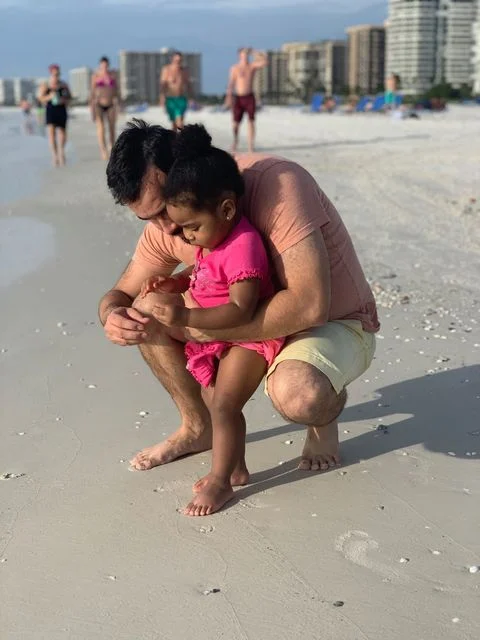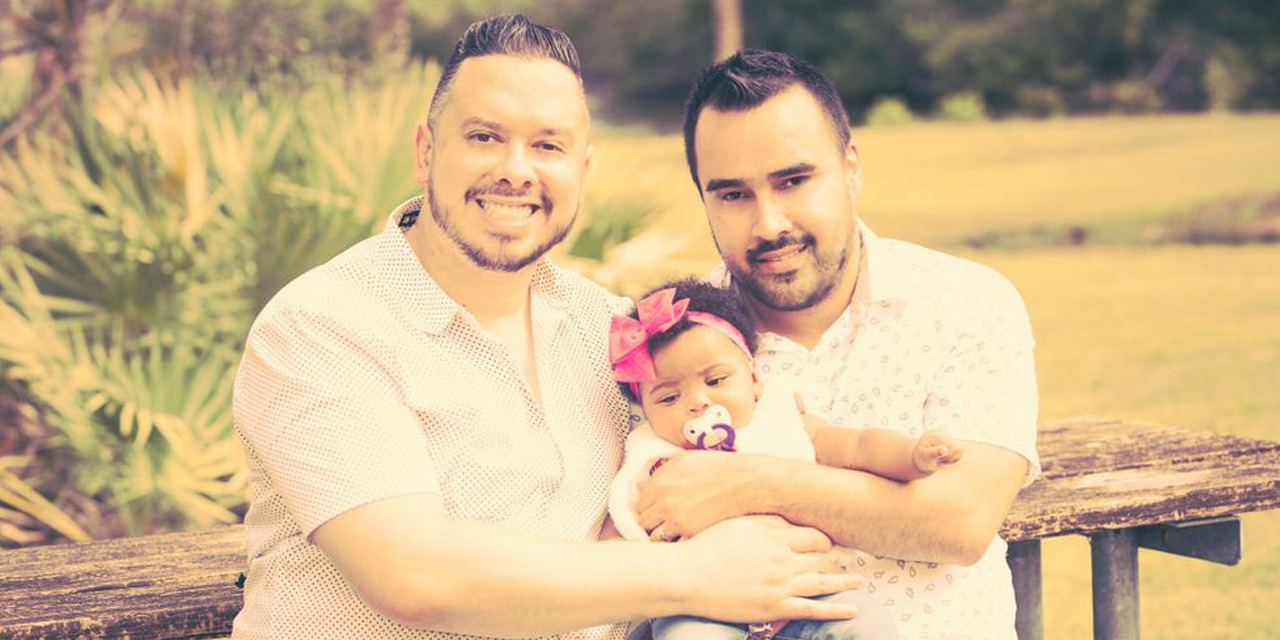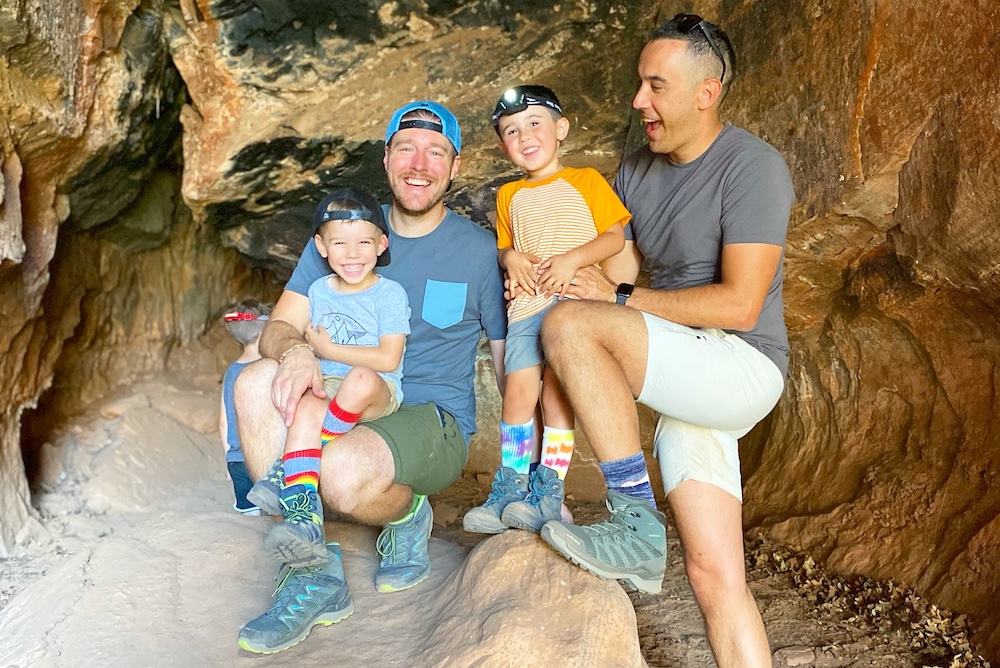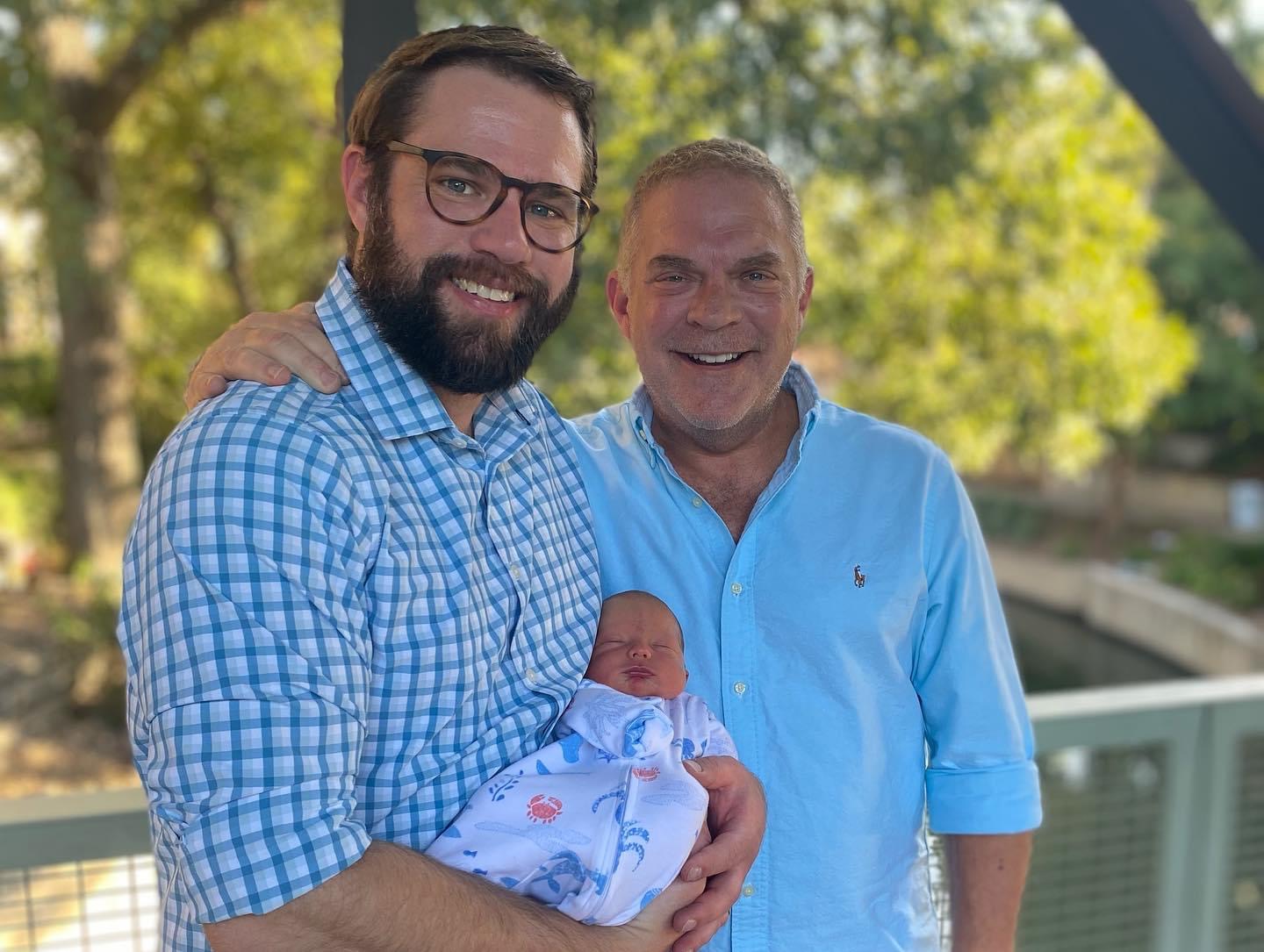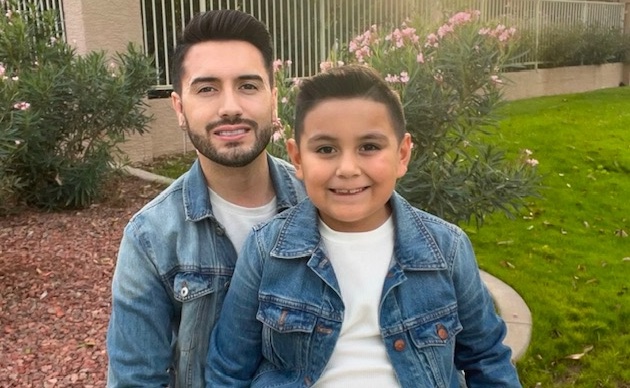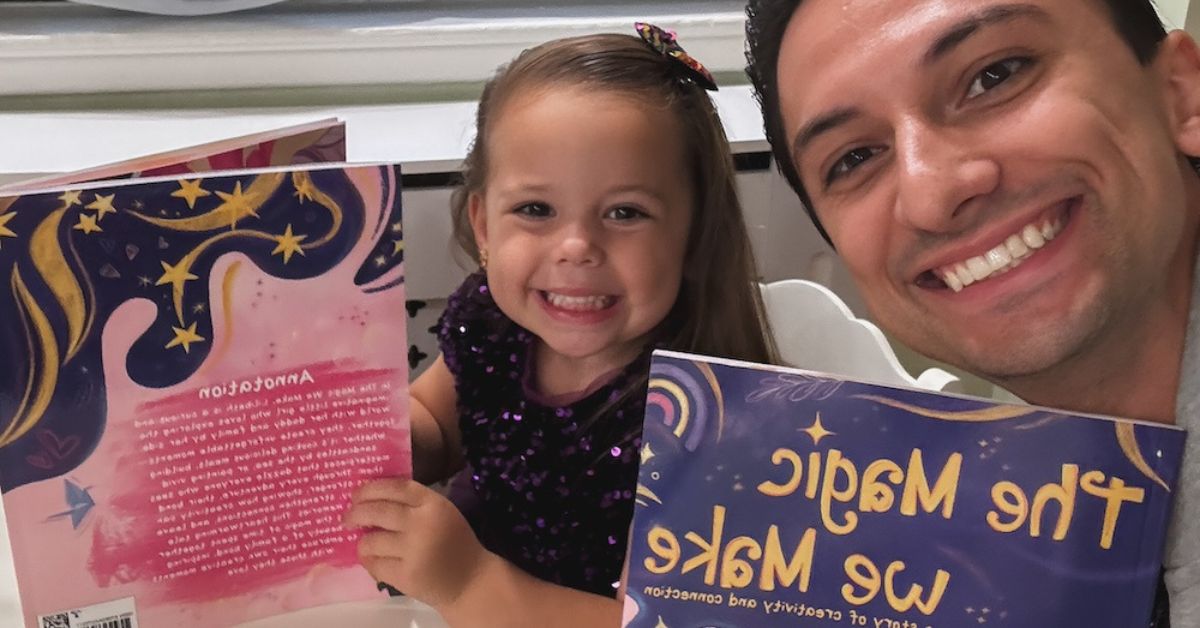Ferdinand Ortiz, 39, and his husband Manuel Gonzalez, 38, have been together for 7 years. In 2017, they became foster dads when they brought their daughter, Mia Valentina, home from the hospital. She was just three days old at the time. On December 13, 2018, her adoption was finalized.
Mia is of Jamaican and African American heritage, and her dads are both Puerto Rican. When Manuel and Ferdinand began their parenting journey through the foster care system, they received specific training on how to be the parents of a child whose race and culture was different from their own. “We learned that it’s important to celebrate our child’s culture and surround ourselves with people who can help her be proud of her culture.” However, as helpful as this training was, the dads agreed that it would’ve been beneficial to hear from other transracial families and the type of challenges that they faced.
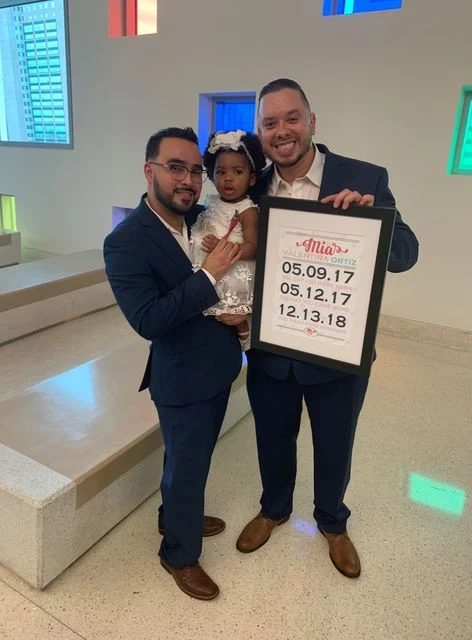
One of their main concerns prior to becoming dads was if their child was going to be judged by the color of their skin, and for being part of a two-dad family. While this wasn’t fully alleviated prior to becoming parents, Ferdinand and Manuel were over the moon when Mia came into their lives, deciding to tackle any challenges they might face head on.
“We embrace her culture, her Jamaican heritage and make it a point to celebrate the fact that she has two Puerto Rican fathers,” said Ferdinand. “She is Jamaican and African American, and that is something to be proud of. Whenever we can, we attend cultural events and surround ourselves with a diverse group of friends.”
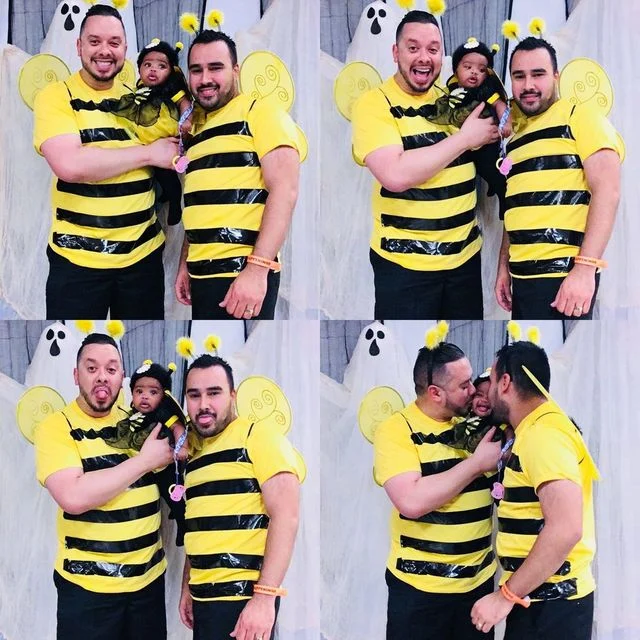
The dads believe that one of the most important things they can do as Mia’s parents is surround her with strong role models that look like her. “We have a support group of African American women who she sees constantly and grown up and learn from. We also have a lot of friends with African American children.” The dads each have very multicultural families so there are plenty of opportunities for the family to celebrate their unique melting pot of cultures.
The support group of African American women have also been wonderful teachers for the two dads when its come to doing Mia’s hair, something that at first the dads found daunting but were determined to learn how to get it right. “We’ve learned to do our daughter’s hair and use products that are specific to her hair type,” says Ferdinand. “Daddy Manuel is much better at this.”
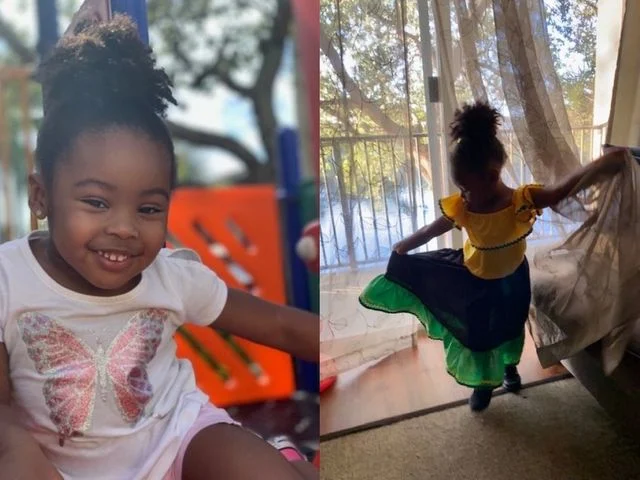
While Mia is still young, the dads are sticking to age-appropriate topics on race and culture. “At the level she grows, we’ll adapt our conversation with her,” explained Ferdinand. “Our goal is to make sure she has positive self esteem, celebrate her beauty and who she chooses to be.”
Ferdinand and Manuel have learned a great deal since becoming dads, and every day they continue to educate themselves. “Don’t limit yourselves from learning, and surround yourselves with people who will help you celebrate cultural differences.” Their advice to others is to include celebrations and traditions typical of their children’s cultures in everyday life. “Don’t ignore their skin color, and learn that there are ignorant people who will only see their skin and ignore everything else.”
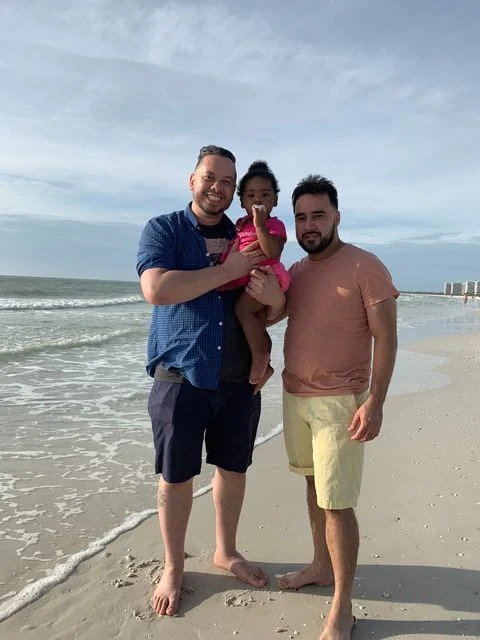
“We’ve met many people who were initially afraid to adopt or foster children of a different race out of fear,” continued Ferdinand. The dads have certainly received their fair share of looks from folks in public, and medical professionals have asked where her mother is during appointments. “The way we’ve handled these issues is by letting them know she’s been our daughter since she was born and we know everything there is to know. We respect her mother but she is unfortunately not a part of her life.”
“One thing we’ve learned is that the love we have for our daughter overcomes any fears and in many ways makes us not worry about others’ opinions of us as a family. Surround yourself with people who will love you unconditionally … beauty comes in different colors and shapes, and that everyone has traits that make them special. [Everyday we] celebrate that Mia is a beautiful African American girl who will be fluent in Spanish and English.”
